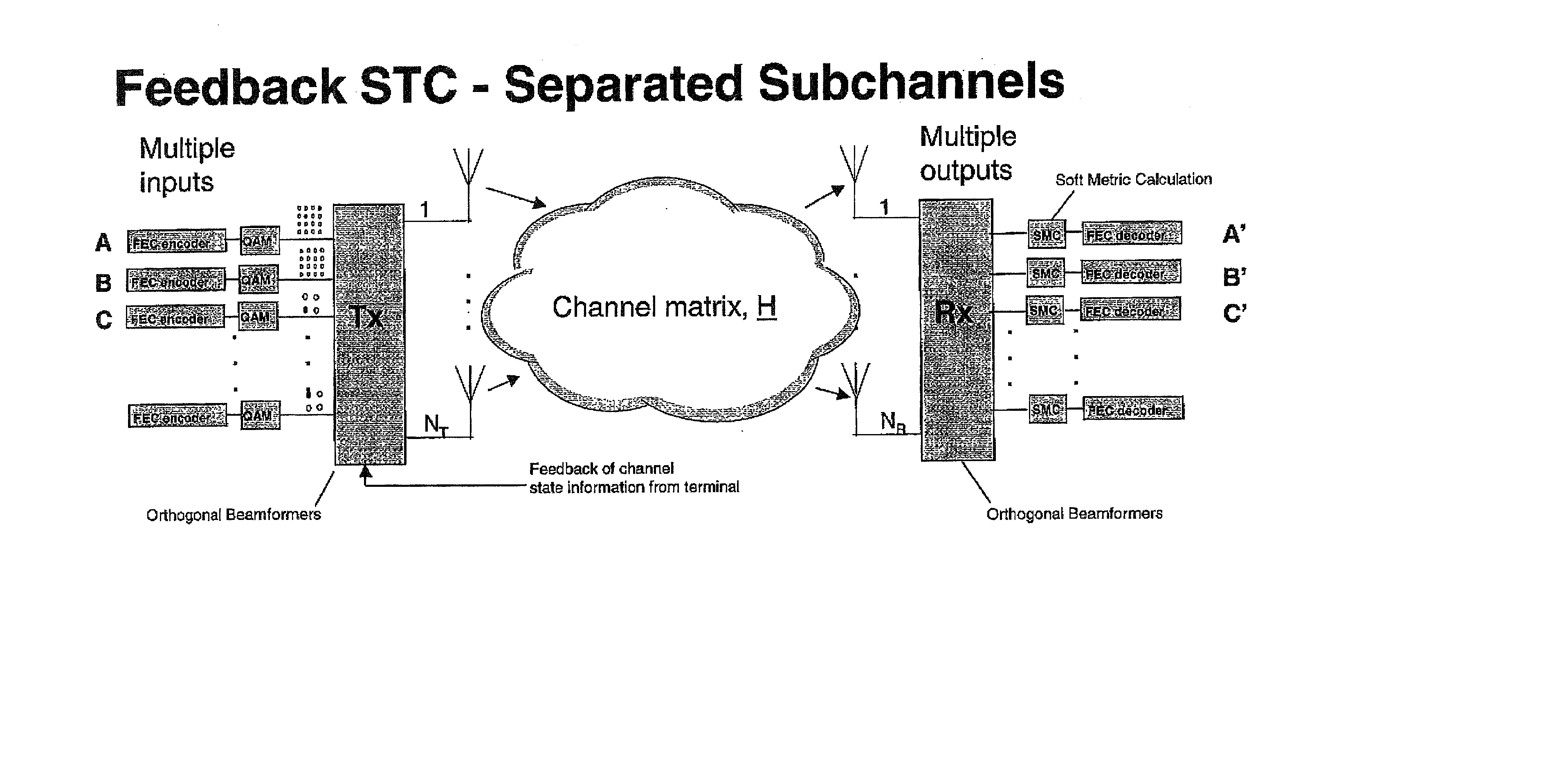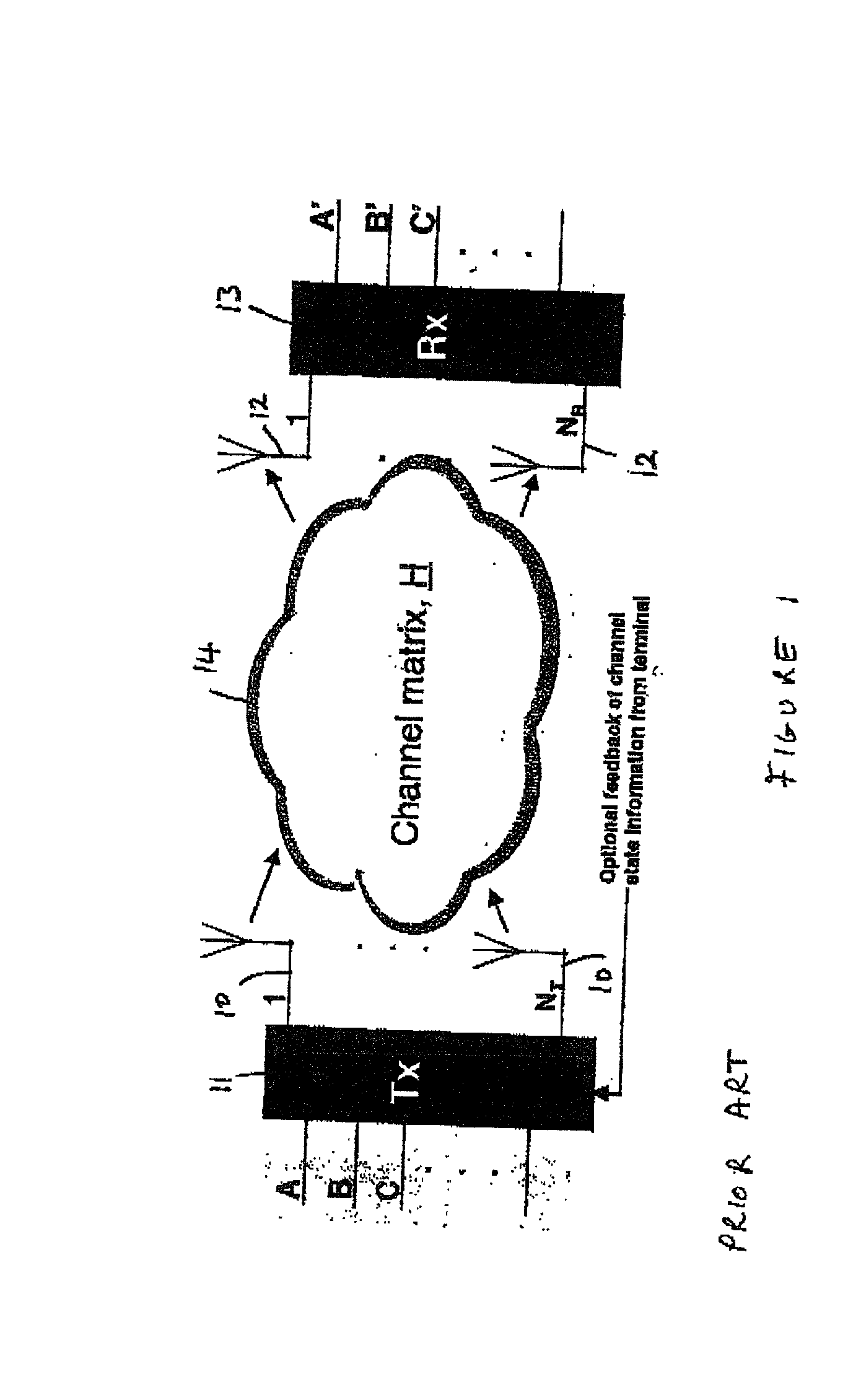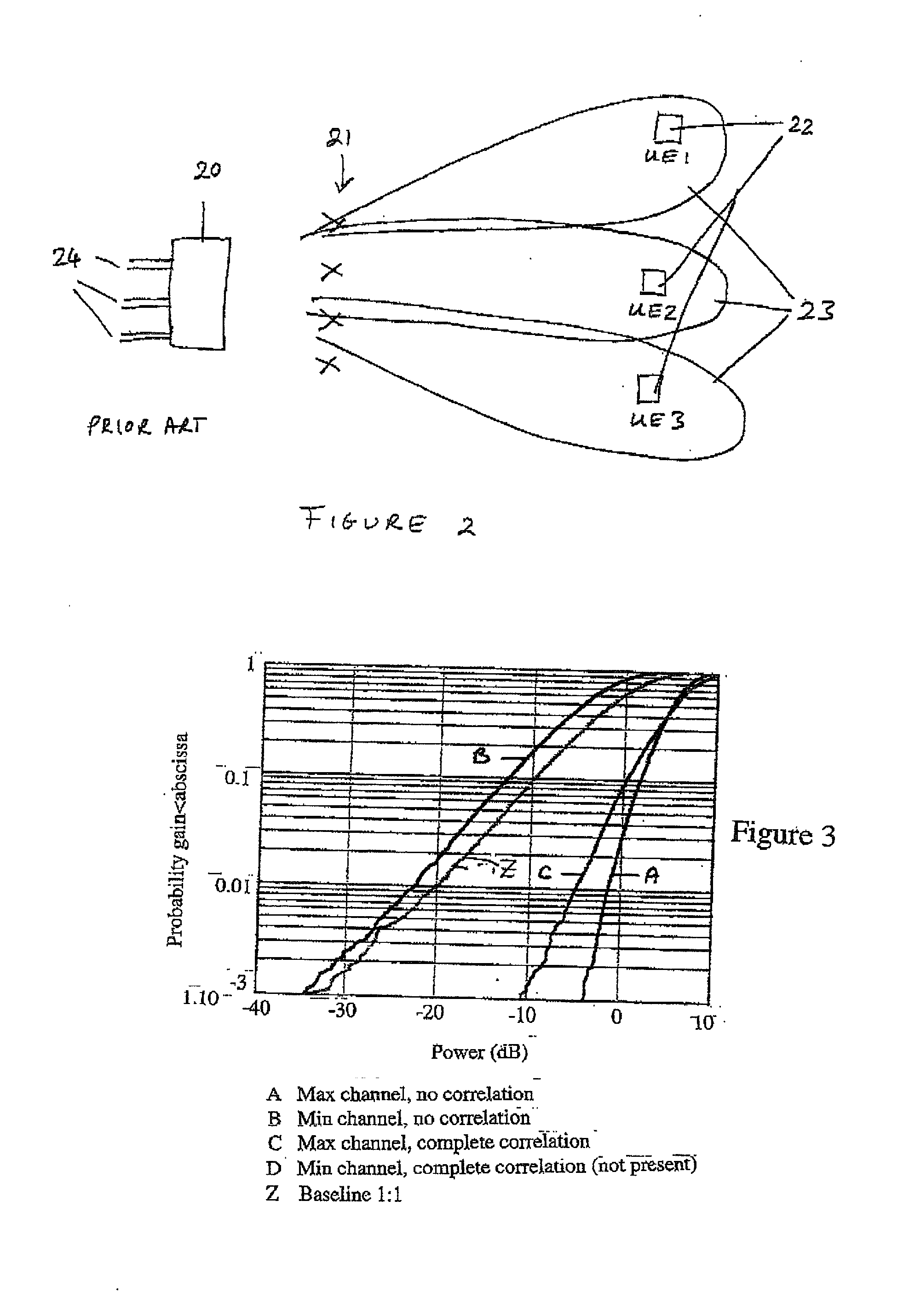MIMO wireless communication system
a wireless communication and wireless communication technology, applied in the field of mimo wireless communication system, can solve the problems of system incompatibility with multi-beam antenna arrangement, large size of transmit and receive antenna array, and inability to realise the potential capacity available from mimo system, so as to avoid spatial diversity, enhance link capacity, and avoid spatial diversity
- Summary
- Abstract
- Description
- Claims
- Application Information
AI Technical Summary
Benefits of technology
Problems solved by technology
Method used
Image
Examples
Embodiment Construction
[0055] Embodiments of the present invention are described below by way of example only. These examples represent the best ways of putting the invention into practice that are currently known to the Applicant although they are not the only ways in which this could be achieved.
[0056] The term "spatial diversity" is used herein to refer to the use of antenna spacing to obtain signals with low correlation for fast fading. The antenna spacing required for low correlation depends on angle of arrival and angle spread of multipath. The lower the angle spread, the greater the spacing required.
[0057] The term "polarisation diversity" is used herein to refer to the use of different antenna polarisations to provide signals with low correlation. This is facilitated by high degrees of polarisation conversion in the propagation environment. It has the advantage that two antennas with different polarisations can share a common position.
[0058] In the examples described below, antenna elements with o...
PUM
 Login to View More
Login to View More Abstract
Description
Claims
Application Information
 Login to View More
Login to View More - R&D
- Intellectual Property
- Life Sciences
- Materials
- Tech Scout
- Unparalleled Data Quality
- Higher Quality Content
- 60% Fewer Hallucinations
Browse by: Latest US Patents, China's latest patents, Technical Efficacy Thesaurus, Application Domain, Technology Topic, Popular Technical Reports.
© 2025 PatSnap. All rights reserved.Legal|Privacy policy|Modern Slavery Act Transparency Statement|Sitemap|About US| Contact US: help@patsnap.com



